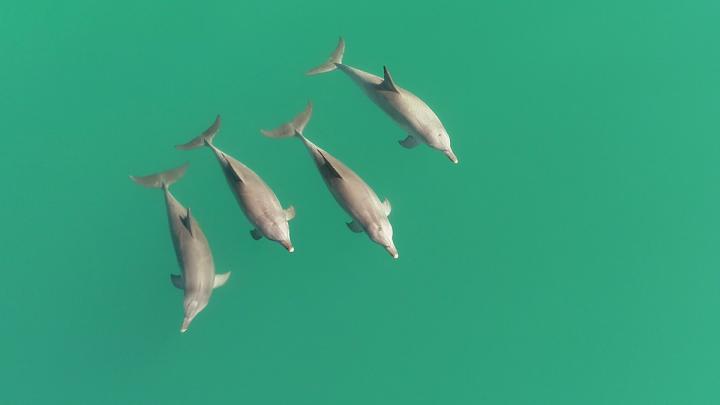
Credit: Dr Simon Allen
When it comes to friendships and rivalries, male dolphins know who the good team players are. New findings, published in Nature Communications by University of Bristol researchers, reveal that male dolphins form a social concept of team membership based on cooperative investment in the team.
The Bristol researchers, with colleagues from the University of Zurich and University of Massachusetts, used 30 years of observational data from a dolphin population in Shark Bay, Western Australia, and sound playback experiments to assess how male dolphins responded to the calls of other males from their alliance network.
Dr Stephanie King, Senior Lecturer from Bristol’s School of Biological Sciences who led the research, said: “Social animals can possess sophisticated ways of classifying relationships with members of the same species. In our own society, we use social knowledge to classify individuals into meaningful groups, like sports teams and political allies. Bottlenose dolphins form the most complex alliances outside humans, and we wanted to know how they classify these relationships.”
Dr Simon Allen, Research Fellow at Bristol’s School of Biological Sciences, who contributed to the study, added: “We flew drones above dolphin groups, recording their behaviour during the sound playbacks, tracking their movements underwater and revealing novel insights into how dolphins respond to the calls of other males in their network of allies.”
Males responded strongly to all of the allies that had consistently helped them out in the past, even if they weren’t currently close friends. On the other hand, they didn’t respond strongly to males who hadn’t consistently helped them out in the past, even if they were friends. What this shows is that these dolphins form social concepts of ‘team membership’, categorizing allies according to a shared cooperative history.
Dr King said: “Such concepts develop through experience and likely played a role in the cooperative behaviour of early humans. Our results show that cooperation-based concepts are not unique to humans, but also occur in other animal societies with extensive cooperation between non-kin.”
###
The study was funded by The Branco Weiss Fellowship – Society in Science and the National Geographic Society.
Media Contact
Stephanie King
[email protected]




